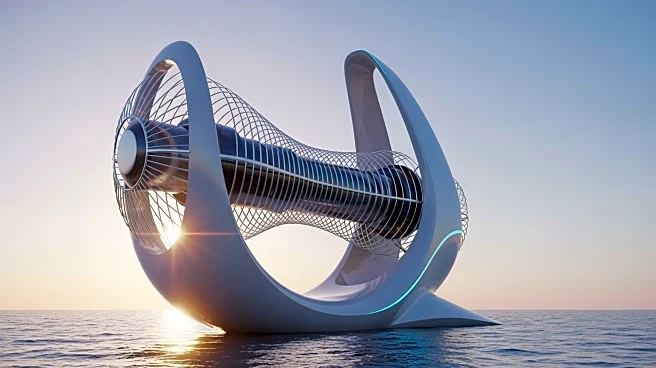What's Happening?
The National Renewable Energy Laboratory (NREL) is advancing its wave energy research through the HERO Wave Energy Converter (WEC) project. The HERO WEC, funded by the U.S. Department of Energy’s Water
Power Technologies Office, has undergone significant design modifications to improve its robustness and reliability. The team has replaced the original inflatable body with a more rigid frame and relocated power system components to enhance maintenance and operations. These changes were validated using NREL’s wave tank, confirming the accuracy of computer-generated simulations. The HERO WEC aims to convert wave energy into fresh drinking water through a reverse osmosis system, offering a sustainable solution for water production.
Why It's Important?
The development of the HERO WEC represents a significant step forward in sustainable energy and water production technologies. By improving the device's durability and efficiency, NREL is addressing the challenges of deploying wave energy converters in harsh ocean environments. This innovation could lead to more reliable and cost-effective solutions for coastal communities facing water scarcity. The successful validation of the new design through wave tank testing underscores the potential for wave energy to contribute to the U.S. renewable energy portfolio, supporting national goals for clean energy and environmental sustainability.
What's Next?
Following the successful validation of the HERO WEC's new design, the research team plans to rely on simulation tools to optimize the device's shape and component configuration. This approach aims to maximize power generation and water production while minimizing stress on the device. The next steps involve scaling up the prototype and preparing for longer-term deployments in real-world ocean conditions. The outcomes of these efforts could influence future policy and investment in wave energy technologies, potentially leading to broader adoption and integration into the U.S. energy grid.











